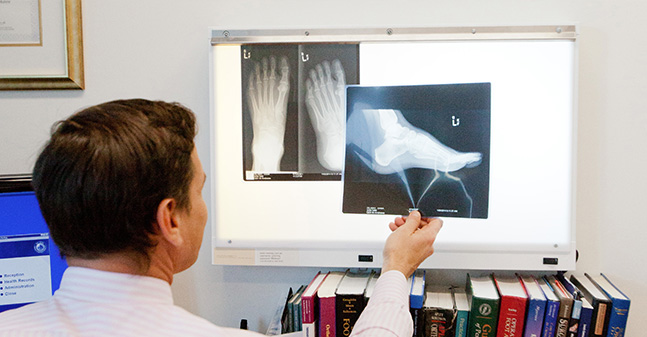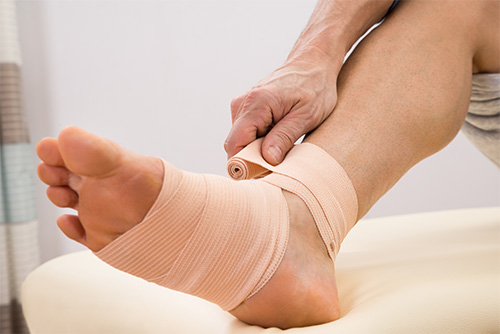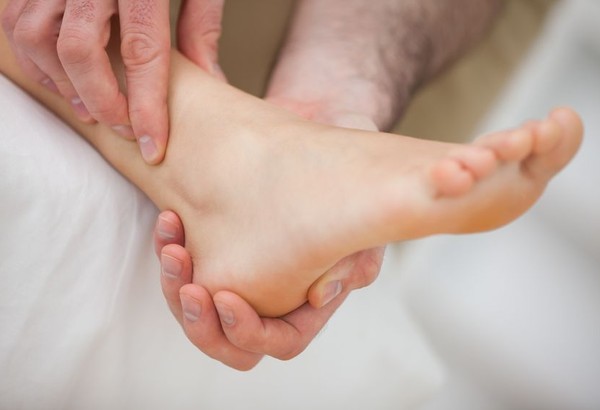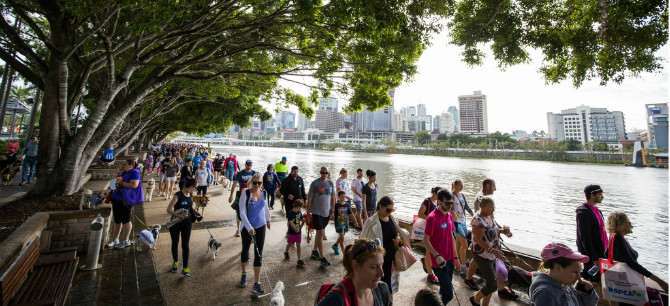It’s a challenge to overcome any kind of surgical procedure. But because you rely so heavily on your feet in almost every aspect of your daily living, dealing with pain, poor mobility, and infections following foot surgery can have a big impact on your quality of life.
That’s why it’s so important to follow the guidelines provided by your surgeon and your health care team, particularly in the postoperative period following your operation. It’s possible to avoid many of the complications of orthopaedic surgery, just by adhering to a few basic principles that can help you get the maximum benefit from your procedure.
Attending to wound care
[ezcol_1half]
One of the most important parts of restoring the health of your feet following foot surgery is managing your wounds. Your surgeon or your nursing team will provide you with wound care products (including surgical dressings) and instructions that you should strictly follow until your wounds have healed.
Keeping any surgical wound clean and free from infection is essential for healing, but it’s even more important in foot and ankle surgery.
Brisbane patients will also face extra challenges to their healing from the warm weather and humidity: even in healthy people, the feet are subject to candidal conditions (like athlete’s foot) and other bacterial infections—but for the orthopaedic patient, this can delay or compromise wound healing.
Adhering to the regime your medical team gives you for cleaning and dressing your wounds can prevent potential complications following your surgery, helping you to restore your foot to optimum health and function.
[/ezcol_1half] [ezcol_1half_end]
Managing pain
[ezcol_1half]
Managing your pain after foot surgery is important for several reasons. Poorly managed pain can cause your body’s stress responses to delay your wound healing, and it prevent you from performing the rehabilitation exercises you need to do to properly regain your foot function.
Your surgeon will prescribe medications to take after your operation to help you manage your surgical pain, but there are also non-medical ways to help reduce your discomfort. These might involve elevating your foot, modifying your activities to reduce pressure on your foot, or applying heat or cold packs (but only according to your surgeon’s instructions).
[/ezcol_1half] [ezcol_1half_end]
If you have any concerns about how your medications affect you, communicate with your medical team to have them reviewed, because there might be alternative medications or ways to manage your pain.
Controlling your pain well will both keep you comfortable as your wounds heal, and help you to restore strength, flexibility, and stability to your foot that will last a long time.
Maintaining good foot hygiene
One of the most important parts of restoring your foot health involves proper hygiene care after foot surgery. Brisbane patients will well know the effects that a warm, humid climate has on keeping their feet clean and dry—and just how important good hygiene is in preventing fungal infections and aiding wound healing.
Besides attending to your wound dressings according to the plan outlined by your nursing or medical team, you should also:
- Thoroughly inspect the feet (including the undersides and in between the toes) for broken skin, cuts or bruising
- Inspect for signs of fungal or bacterial infection on the skin, and use antibacterial powder or other products recommended by your doctor
- Monitor the toenails for ingrowing nails or signs of inflammation and infection
- Thoroughly wash and dry your feet before going to bed
- Go barefoot as much as possible
Bacterial and fungal infections are uncomfortable conditions to have even when you’re healthy. Good foot hygiene can prevent this discomfort from adding to your surgical pain, as well as prevent the complications they can cause in your surgical wounds, so remember to be diligent with your hygiene cares throughout your postoperative period.
Undertaking physiotherapy
[ezcol_1half]
[/ezcol_1half] [ezcol_1half_end]
It takes persistence to restore orthopaedic health after surgery, and this is particularly true for your feet. Active recovery through physiotherapy can help you to correct and form good foot health habits, foster healthy tissue regeneration, and improve stability, function and flexibility as your foot heals.
Your surgeon will arrange or recommend a physiotherapy team who will treat you following surgery.
Physiotherapy is an important part of your recovery, as it helps to build and restore joint and tissue mobility that is lost quickly through injury and surgery.
Your physiotherapist will help you with exercises designed to improve your range of motion, reduce your pain, and aid your healing, as well as help you to perform your daily living activities while you’re recovering.
[/ezcol_1half_end]
Wearing the correct footwear
Footwear is often overlooked, but it can affect the outcome of your foot surgery: poor footwear choices can injure your feet, cause your foot problem to come back again, and cause new orthopaedic problems that affect your entire body. Your medical team may provide you with special orthotics or other therapeutic devices to wear, or with recommendations for footwear following your surgery.
Making good footwear choices can help your foot to heal after your operation, and deliver many other orthopaedic health benefits over the long term.
It’s also important to get your shoes off as much as you can. Walking barefoot helps to strengthen intrinsic foot muscles in your foot that you don’t use when you’re wearing shoes, improving foot strength and restoring the natural shape and function of your arches.
Getting regular exercise
[ezcol_1half]
Foot surgery is designed to be a long-term solution to your orthopaedic problem, but for it to deliver the best outcomes in function and health, you need to perform the exercises recommended by your medical and allied health teams.
The permanent success of your foot surgery depends on regaining and maintaining mobility, by preventing scar tissue and pain with a rehabilitative weight-bearing exercise program designed specifically for you.
[/ezcol_1half] [ezcol_1half_end]
[/ezcol_1half_end]
Brisbane patients might take advantage of the many new walking paths and outdoor gyms throughout the suburbs—gentle walking once or twice a day can help to combat the postoperative complications that arise from immobility, and restore the strength and flexibility of your foot through natural movement.
Rest is important for healing, and you’ll need to avoid putting pressure on your foot for a period of time following your surgery. But you’ll get moving again soon after, as long as you follow the instructions given to you by your nursing team, physiotherapy team, and orthopaedic surgeon.
For more information about treating foot problems and recovering from foot surgery, contact Greg Sterling Orthopaedics, your orthopaedic specialists in Brisbane.







